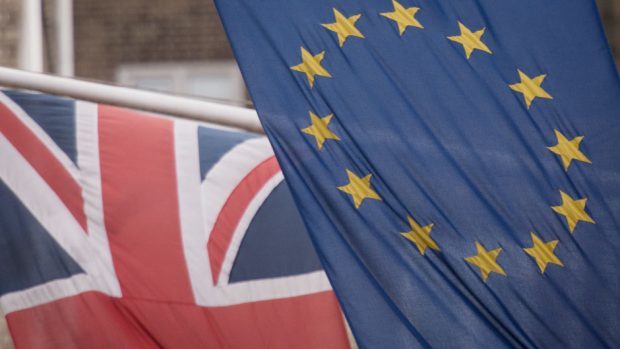The Brexit Repeal Bill faced an immediate backlash from opposition parties and devolved governments, underlining the scale of the task the minority Government faces to get it through Parliament and into law.
Labour looks set to vote against the crucial legislation unless it is amended, because it states the European Charter of Fundamental Rights will not be put into UK law after the country’s withdrawal from the European Union.
The First Ministers of Scotland and Wales, Nicola Sturgeon and Carwyn Jones, said they would not grant the required legislative consent to the Bill as it stands, describing it as a “naked power grab” because it does not immediately return EU powers to devolved administrations.
And the Liberal Democrats warned the Government faces “hell” over the Bill, and a “political nightmare” that could cost Theresa May her job as Prime Minister.
Their statements underlined the fierce battles ahead over the European Union (Withdrawal) Bill, in which a handful of Tory rebels could force the Government to change the legislation.
Acknowledging the tricky situation, Brexit Secretary David Davis appealed for parties to “work together” to ensure the UK has a functioning legal system on exit day, expected in March 2019.
“The eyes of the country are on us and I will work with anyone to achieve this goal and shape a new future for our country,” he said.
But the Government has already put itself on collision course with Labour, which poses a significant threat in parliamentary votes and has made the EU rights charter a “red line” for support.
It is understood ministers believe the rights in the charter are already contained in EU rules which the legislation will convert into domestic law on the day of Brexit.
Britain will also retain its own domestic rights and protections and remain a member of the European Convention on Human Rights, so the Government believes leaving the charter will not have a significant real-life effect.
Ministers are also likely to cite a report by the Women and Equalities Select Committee which says the charter would be “difficult to apply” in a domestic context alone.
But shadow Brexit secretary Sir Keir Starmer has made clear Labour would not support the Bill in its current form.
He demanded concessions in six areas, including incorporating the charter into UK law, ensuring workers’ rights in the UK do not fall behind those in the EU, and limiting the scope of so-called “Henry VIII powers”, which could allow the Government to alter legislation without full parliamentary scrutiny.
The Bill is designed to transpose EU law into British law so the same rules apply on the day of Brexit as the day before, while giving parliaments and assemblies in Westminster, Edinburgh, Belfast and Cardiff the power to drop or change them in the future.
The Government hopes it will give confidence to businesses, workers and consumers that they will not face unexpected changes on the day of Brexit, while ending the supremacy of EU law in the UK.
There is also likely to be a clash over the Bill’s creation of Henry VIII powers, which would allow ministers to change laws and create new regulators or quangos without full parliamentary scrutiny for two years after the Brexit date.
The Government has insisted it will be a limited power to correct minor issues in the law and it is understood the number of new regulators required is estimated to be in single figures.
But with 800 to 1,000 pieces of secondary legislation, known as statutory instruments, likely to be brought forward under the powers and a two-year window in which to exercise them, there are likely to be objections from MPs and peers.
Labour MP Wes Streeting, commenting on the behalf of the Open Britain campaign for a close relationship with the EU, said the Henry VIII powers were “undemocratic, unaccountable and simply wrong”.
Meanwhile TUC general secretary Frances O’Grady described it as a “Downing Street power grab” and called for a protection of workers’ rights.
The Equality and Human Rights Commission said rights under the EU charter must be protected and said it would recommend amendments.
And human rights groups Liberty and Amnesty International UK jointly called on the Government to put a pledge in the Bill not to roll back rights and freedoms.
The Bill was given its first reading in the Commons on Thursday, which means its title was read out followed by an order for the Bill to be published.
It will not be formally debated until autumn.
